Polaris Ranger 1000 vs XP 1000: Top Speed Showdown

When it comes to utility terrain vehicles (UTVs), Polaris is a name that stands tall with offerings that cater to both recreational riders and workers. Two of their most popular models are the Polaris Ranger 1000 and the Polaris Ranger XP 1000. While they share many similarities, one burning question often pops up among enthusiasts and potential buyers: what’s the difference in top speed between these two models?
In this blog, we’ll delve into the nitty-gritty details of the top speeds of the Polaris Ranger 1000 and the XP 1000, comparing their performance and features to help you decide which one might be the best fit for you.
Let’s dive in!
Understanding the Basics: Polaris Ranger 1000 vs. XP 1000
Before diving into top speeds, let's take a quick look at what each model offers.
The Polaris Ranger 1000 is a workhorse. Designed primarily for utility purposes, it boasts a robust 999cc ProStar engine delivering 61 horsepower. This UTV is known for its durability, ease of use, and impressive hauling capabilities, making it a great choice for farmers, ranchers, and anyone in need of a reliable work companion.
On the flip side, the Polaris Ranger XP 1000 takes everything great about the Ranger 1000 and cranks it up a notch. Equipped with a more powerful 999cc ProStar engine producing 82 horsepower, the XP 1000 is tailored for those who want both utility and an extra dose of adrenaline. It's designed to handle tougher terrains and carry heavier loads, all while offering a more thrilling ride experience.
Now, let's get to the heart of the matter: how fast can Polaris Ranger 1000 vs. XP 1000 go?
Polaris Ranger 1000 vs. XP 1000 Top Speed Chart by Model Year
The Polaris Ranger 1000 has seen some incremental improvements over the years, but the XP 1000 has consistently maintained a higher top speed.
Here's a chart that showcases the top speeds of different model years for the Polaris Ranger 1000 and XP 1000.
|
Model Year |
Polaris Ranger 1000 Top Speed |
Polaris Ranger XP 1000 Top Speed |
|
2018 |
50 mph |
60 mph |
|
2019 |
52 mph |
62 mph |
|
2020 |
54 mph |
62 mph |
|
2021 |
55 mph |
62 mph |
|
2022 |
55 mph |
62 mph |
|
2023 |
55 mph |
62 mph |
|
2024 |
/ |
65 mph |
Polaris Ranger 1000 Top Speed
The Polaris Ranger 1000 has a respectable top speed of around 55 mph. For a UTV geared toward utility tasks, this is pretty impressive. It allows you to get from point A to point B quickly, whether you're navigating through fields, forests, or work sites. While it may not be the fastest UTV on the market, it delivers enough speed to get your job done efficiently.
Polaris Ranger XP 1000 Top Speed
As expected, the Polaris Ranger XP 1000 kicks things up a notch with a top speed of approximately 62 mph. This increased speed can make a significant difference if you're looking to cover long distances in a shorter time frame.
Feel free to share the Polaris Ranger speed chart with anyone who might find it useful or save it for yourself when deciding between these two capable UTVs!
Factors Influencing Top Speed
It's worth noting that several factors can influence the top speed of both the Ranger 1000 and XP 1000. These include:
-
Terrain: Rough, uneven, or hilly terrains can reduce the achievable top speed.
-
Load: Carrying heavy loads can affect acceleration and top speed.
-
Tire Condition: Worn-out or inappropriate tires can hinder performance.
-
Weather Conditions: Wind resistance and other weather factors can impact speed.
Understanding these variables can help you set realistic expectations when you’re out riding these machines.
Key Differences Between Polaris Ranger 1000 and 1000 XP Besides Top Speed
While top speed is an exciting metric, it's essential to consider other performance aspects that contribute to the overall riding experience.
1. Acceleration and Power Delivery
The Polaris Ranger XP 1000, with its higher horsepower of 82 hp, naturally has quicker acceleration compared to the Ranger 1000. This makes it better suited for tasks like towing trailers, off-roading, construction work, farming, and search and rescue that require swift movements or rapid changes in direction.
2. Handling and Suspension
Both models offer excellent handling and suspension systems; however, the XP 1000, designed with more rugged terrain in mind, provides slightly superior stability and shock absorption. If your adventures take you over particularly rough trails, the XP 1000's suspension system will keep you more comfortable and in control.
3. Versatility and Utility

While the Ranger XP 1000 edges out in power and speed, the Ranger 1000 holds its ground firmly in the versatility and utility department. Its design is optimized for work with features like ample storage spaces, durable payload capacities, and user-friendly controls.
The Ranger 1000 includes a large under-seat storage area and a spacious cargo box that can hold up to 1,000 pounds. It also has a total payload capacity of 1,500 pounds, perfect for handling heavy loads. The user-friendly controls feature an easy-to-read digital display, ergonomic steering, and conveniently located switches for lights, the winch, and other accessories.
If your primary focus is work-related tasks, the Ranger 1000 could be a more practical choice.
4. Customization Options
Both Ranger models come with a plethora of customization options. From winches and plows to cab systems and lighting, you can tailor these UTVs to meet your specific needs. Whether it's enhancing comfort, increasing functionality, or boosting performance, Polaris offers a broad range of accessories for both the Ranger 1000 and the XP 1000.
Plus, there are tons of high-quality aftermarket accessories for Polaris Ranger available to make your ride more comfortable and enjoyable, whether you're working or having fun with your UTV!

Which One Should You Choose?
Deciding between the Polaris Ranger 1000 and the XP 1000 ultimately boils down to your specific needs and preferences. Here's a quick breakdown to help you make an informed decision:
Choose the Polaris Ranger 1000 If:
-
Utility is Your Main Priority: If you need a reliable vehicle for work tasks such as hauling, towing, or transporting equipment, the Ranger 1000 is well-equipped to handle these duties.
-
Budget-Friendly Option: Generally, the Ranger 1000 comes at a lower price point than the XP 1000, making it a more budget-friendly option without compromising much on performance.
-
Simplicity and Durability: If you prefer a straightforward, no-frills vehicle that's built to last, the Ranger 1000 fits the bill perfectly.
Choose the Polaris Ranger XP 1000 If:
-
You Want More Power and Speed: With a higher top speed and greater horsepower, the XP 1000 offers a more exhilarating ride for those who crave adventure.
-
Versatility: If you want a UTV that can seamlessly transition from work to play, the XP 1000’s additional features and enhanced performance make it highly versatile.
-
Rough Terrain Handling: For those who frequently navigate challenging terrains, the advanced suspension and handling system of the XP 1000 provide a smoother, more controlled experience.
The Right Choice for Your Needs
Both the Polaris Ranger 1000 and the XP 1000 are fantastic options, each with its own set of strengths. The Ranger 1000 is all about utility and getting the job done, while the XP 1000 delivers powerhouse performance. By getting to know their differences, especially in terms of top speeds and overall capabilities, you can pick the one that's just right for your needs and lifestyle.
Whether you're tending to the farm, tracking game in the wilderness, or blazing your own trail through rugged terrain, Polaris has designed these models to fit a wide range of needs and adventures. So, suit up, rev that engine, and dive into your next journey with whichever Polaris Ranger you pick!
If you found this comparison helpful, feel free to share it with fellow UTV enthusiasts!


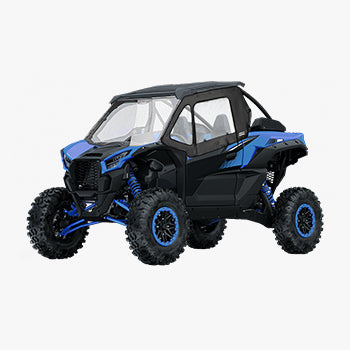

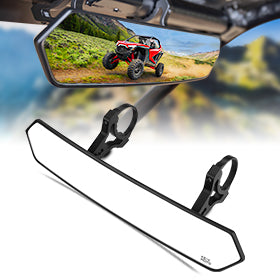
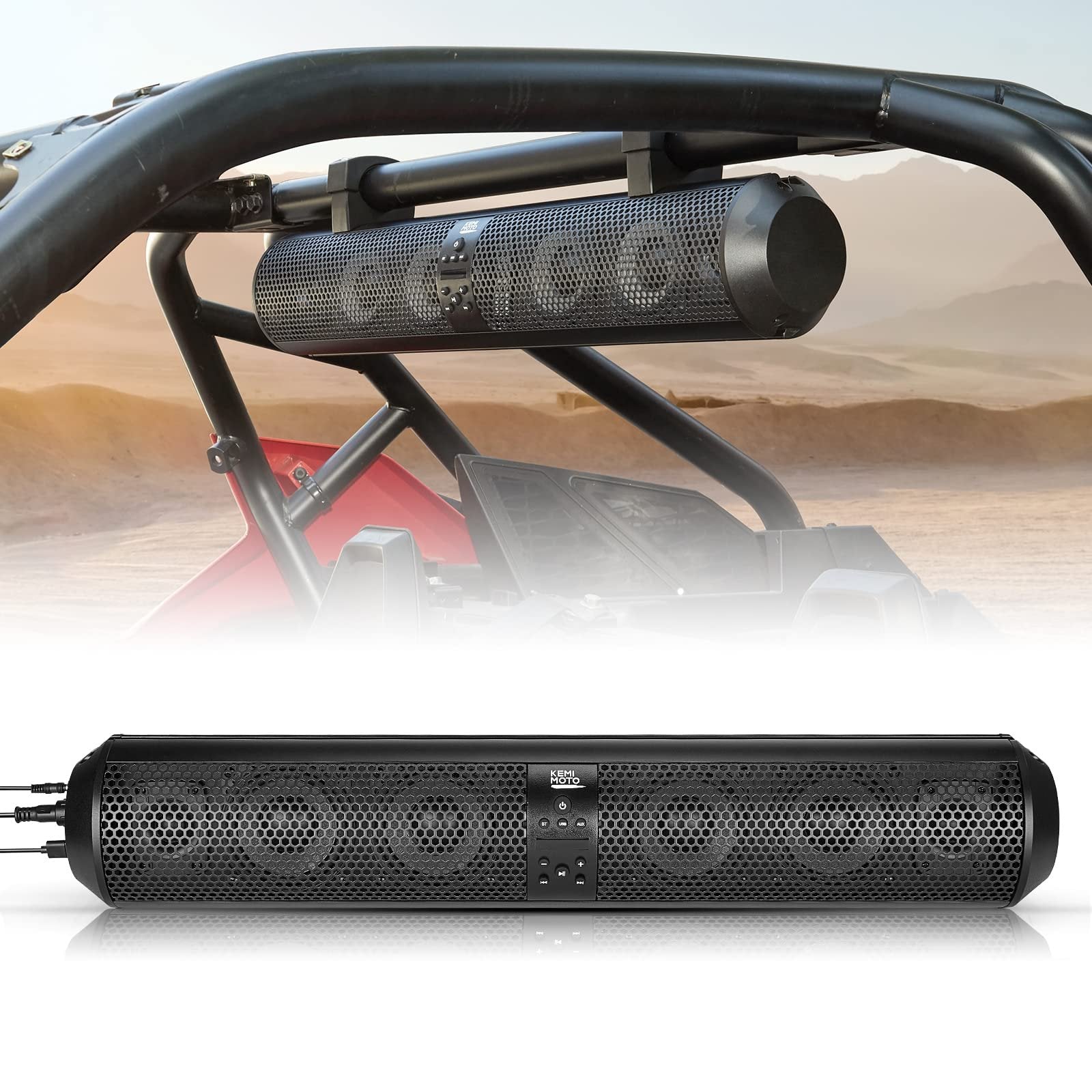




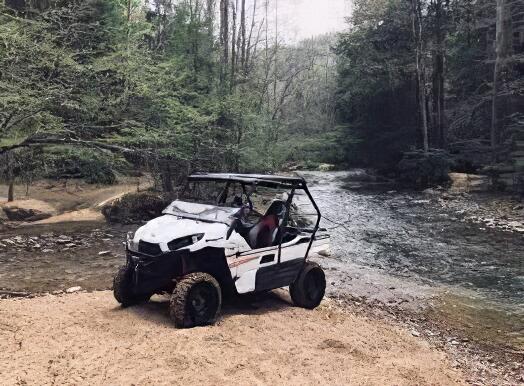
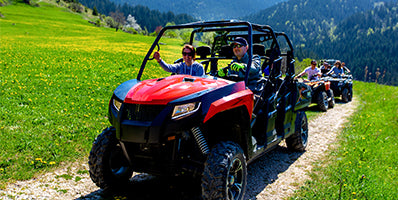
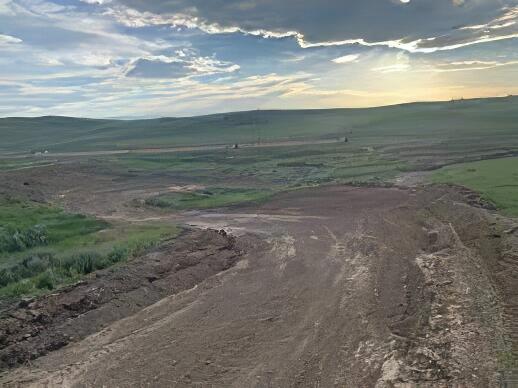
Leave a comment